Google is known for introducing strict updates and implementing various measures to enhance the quality of its search results. Since its first ever algorithm PageRank in 1998, the tech giant has brought many algorithms to improve its search results.
The latest on the list is Google’s March 2024 core update.
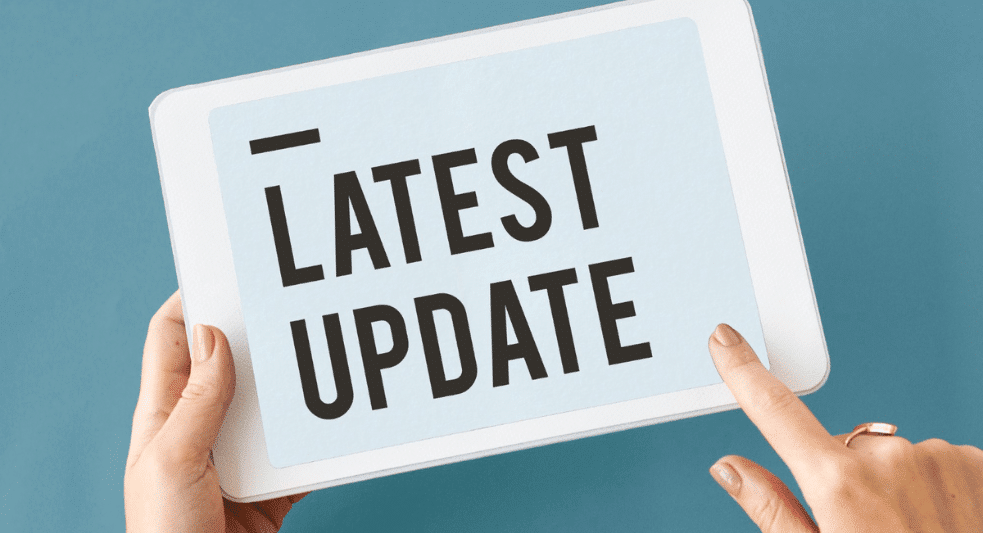
“The March 2024 core update is a more complex update than our usual core updates. Google made changes to multiple core systems, there will be more fluctuations in rankings than with a regular core update, as different systems get fully updated and reinforce each other,” said Chris Nelson from the Search Quality team at Google.
This is meant to improve search by showing less clickbait and more helpful content that people find useful. The March 2024 core update might last about a month and might have multiple updates.
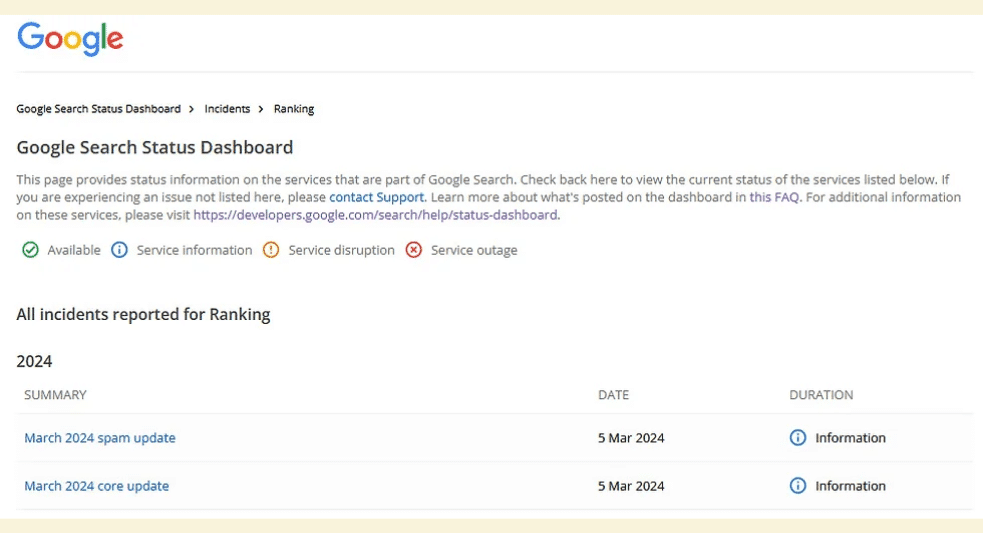
New Spam Policies
Google’s spam policies are formulated to combat practices that could degrade the quality of its search results.
Three new spam policies targeting prevalent bad practices have been announced:
- Expired domain abuse
- Scaled content abuse
- Site reputation abuse
Content creators are encouraged to review all policies and ensure compliance to avoid engaging in such practices. Violating sites may experience lower rankings or exclusion from search results. Site owners affected by a spam manual action will receive notifications through their registered Search Console accounts and can request reconsideration.
In addition to introducing new spam policies, the March 2024 spam update has also been launched.
-
Expired Domain Abuse
Expired domain abuse involves purchasing old domain names, like ones previously used by reputable websites, and repurposing them to host low-quality content, such as irrelevant ads or spam.
Let’s consider a website:
italianfoodonlinestore.com
This brand sold food-related products and ranked for over 13,000 keywords.
Here’s a screenshot of the Italian Food Online Store from 2021:
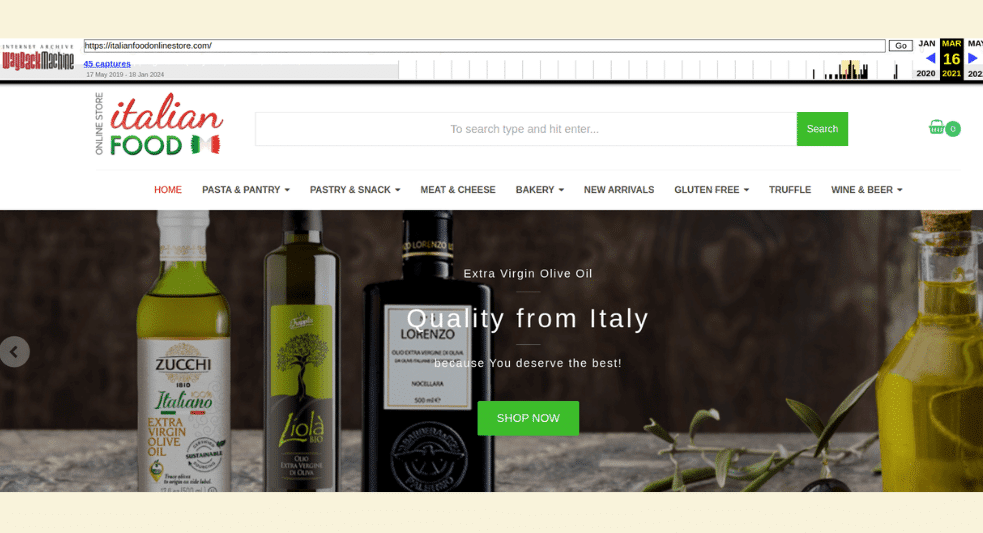
Now, the domain has expired, and someone else has turned it into a blog website.
Here’s a screenshot of the Italian Food Online Store in 2024:

This tactic aims to manipulate search engine rankings by leveraging the domain’s past reputation. These sites are not intended for real users but rather to deceive search engines into ranking them higher.
-
Scaled Content Abuse
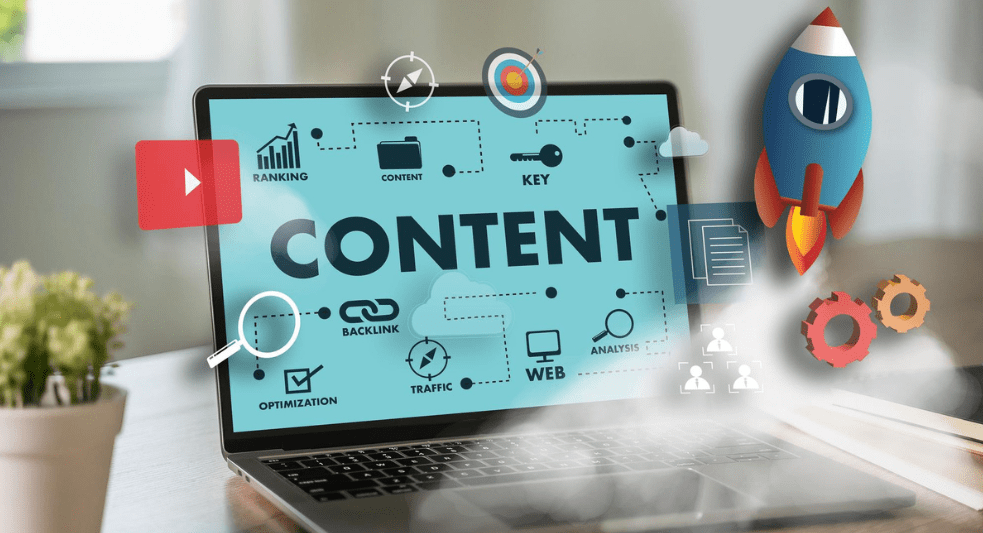
Scaled content abuse involves generating numerous web pages primarily to manipulate search engine rankings rather than provide valuable content to users.
This deceptive practice focuses on creating large volumes of unoriginal content that offer little to no value to users, regardless of how it’s produced.
Google’s new policy addresses scaled content abuse by building upon previous spam policies related to automatically generated content. This ensures that Google can take action against this abusive practice, whether the content is generated through automation, human efforts, or a combination of both.
It aims to ensure that search results prioritize genuinely helpful and relevant content for users rather than spammy or low-quality material.
Example :

-
Site Reputation Abuse, Aka Parasite SEO
“Site reputation abuse,” often called “Parasite SEO” by some in the industry, involves third-party sites hosting low-quality content provided by external sources to exploit those third-party websites’ ranking authority.
For example, a trusted educational website may unwittingly host payday loan reviews to boost the rankings of unrelated content.
According to Google, such tactics can confuse or mislead visitors who expect different content from a particular website. The new policy explicitly identifies third-party content created primarily for ranking purposes and lacks close oversight from website owners as spam.
However, it’s important to note that not all third-party content violates this policy. Google emphasizes that only content hosted without close oversight and intended to manipulate search rankings falls under the policy’s scope.
Impact of Google Core Update: What We Analyzed

To understand the impact of the Google Core Update for March 2024. We analysed 8000 websites that we suspected were utilizing substandard content to boost traffic.
The impact was profound, as Google’s spam update not only triggered site deindexation of 40% of the websites but also significantly reduced overall website traffic.
Below is an example from the websites we analyzed:
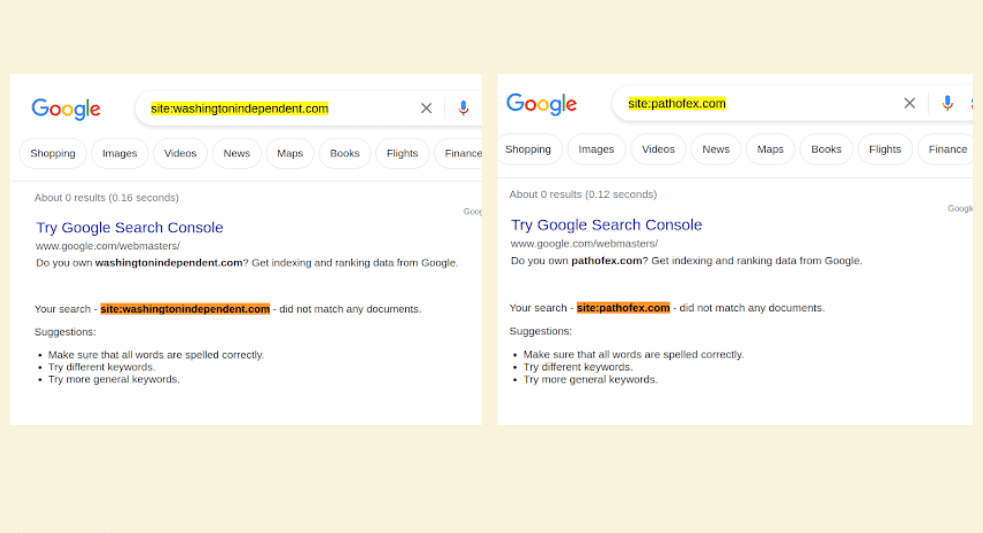
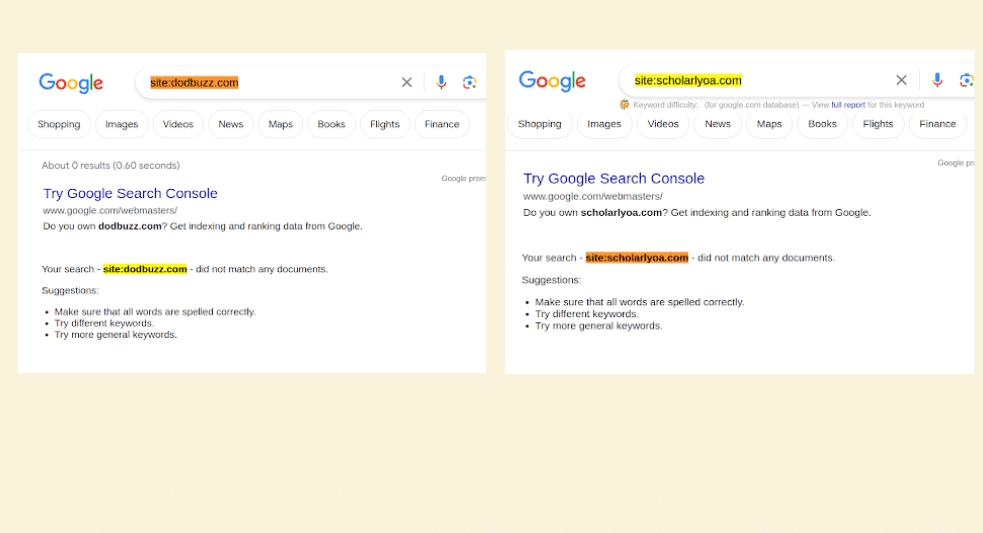
We conducted an analysis using Ahrefs, revealing a notable setback for prominent websites.
Websites with over 30k traffic experienced a drastic decline in traffic value.
These numbers will hit zero soon for all deindexed websites as Ahref tool will crawl the keywords again.
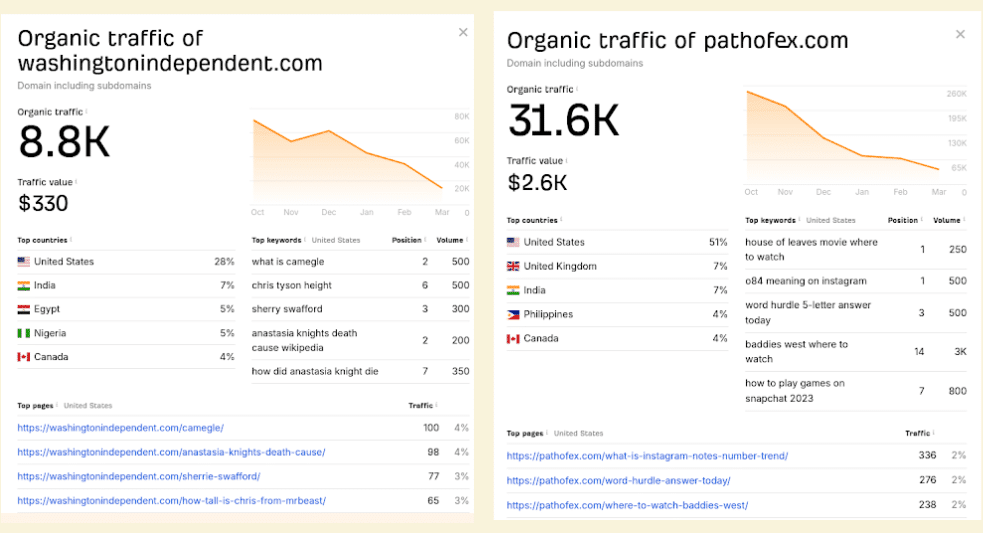
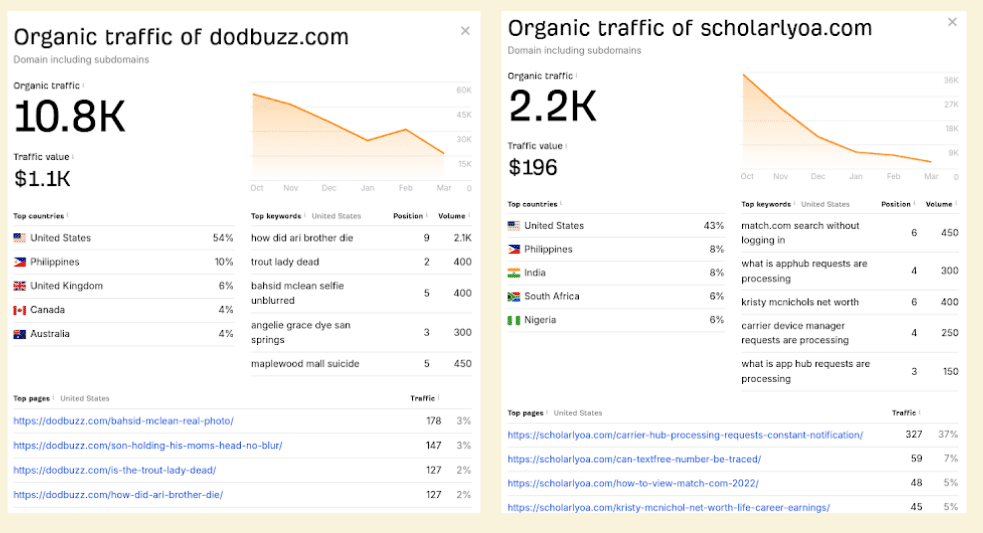
Many popular websites went through similar problems because they published low-quality content.
Implications for Online Businesses and the SEO Community
The core update aims to combat prevalent bad practices: expired domain abuse, scaled content abuse, and site reputation abuse.

Online Businesses:
- Adherence to the new policies is critical for maintaining or improving search rankings and visibility.
- Violations may result in lower rankings or exclusion from search results, impacting website traffic and potential revenue.
SEO Professionals:
- The update emphasizes the importance of staying updated on Google’s guidelines and algorithm changes within the SEO community.
- SEO practitioners must align their strategies with Google’s standards to avoid penalties and maintain search visibility for clients or websites.
- The simultaneous release of core and spam updates complicates the analysis of potential impacts on website rankings, necessitating a more nuanced approach to adaptation.
Google’s emphasis on reducing low-quality content and combating manipulative tactics highlights the ongoing battle against spam and underscores the search engine’s commitment to prioritizing user experience and relevance.
This update serves as a reminder for businesses and SEO professionals to prioritize high-quality, user-focused content and ethical optimization practices to thrive in the evolving digital landscape.
Steps to Recover from Google’s March 2024 Core Update:
The March 2024 core update is a pivotal moment, promising both challenges and opportunities for online businesses. Understanding its implications and taking steps to adapt is crucial. Here is how you can do it:
- Content Clean-Up: Remove all unhelpful or low-quality content from your website to improve overall quality and relevance.
- Consider a Domain Change: In severe cases, getting a new domain might be necessary to distance your site from past issues and start fresh.
- Address Black-Hat Techniques: Review and eliminate any black-hat SEO techniques that violate Google’s guidelines, such as keyword stuffing or cloaking.
- Disavow Unnatural Links: Use Google’s disavow tool to disassociate your site from any unnatural or spammy backlinks that could harm your rankings.
- Optimize User Experience: Enhance user experience by improving site navigation, page load speed, and mobile responsiveness to boost engagement and satisfaction.
- Focus on Quality Content: Prioritize creating high-quality, valuable content that addresses user intent and provides genuine value to visitors.
Recovering from Google’s March 2024 core update requires proactive measures to clean up your website, eliminate past mistakes, and demonstrate your commitment to providing a trustworthy and valuable user experience.
You can rebuild trust with Google and regain lost rankings and visibility by fixing errors, proving your credibility, and showcasing your long-term dedication.
Our Take
As a digital marketing agency, we see Google’s March 2024 update as a significant stride in enhancing the online environment for businesses and users. The rollout of new spam policies targeting expired domain abuse, scaled content abuse, and site reputation abuse underscores Google’s dedication to fairness and transparency online.
This update is a boon for businesses aiming to build a credible online presence. Google’s crackdown on manipulative tactics and low-quality content levels the playing field, favouring websites that prioritize quality and relevance—echoing our agency’s commitment to user-centric content and ethical SEO practices.
The simultaneous release of core and spam updates provides clarity and empowers us to adapt to algorithm changes effectively. It reinforces the importance of content quality, given the looming threat of diminished value for websites.
Overall, Google’s initiative enhances the search experience and fosters a balanced digital ecosystem. It aligns with our dedication to delivering outstanding results for clients while upholding the highest standards of integrity and professionalism.
Final Note
With its new policies and continuous enhancements to its spam-fighting systems, Google’s objective is to ensure users receive excellent, helpful content and prioritize those who produce such content in search results over those engaging in spamming activities.
Google plans to update the Search Status Dashboard to indicate the completion of the rollouts. Additionally, after the update’s conclusion, it will announce the availability of a feedback form inviting individuals to provide specific feedback.
